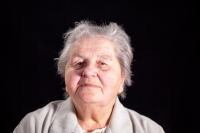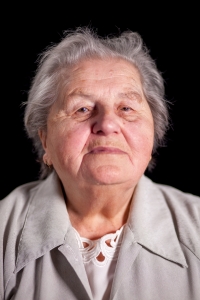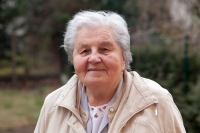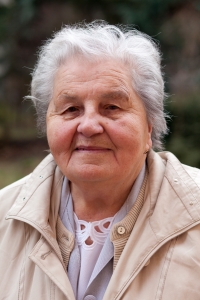All the time, we were afraid

Download image
Zdeňka Holá, née Pešicová, was born on April 22, 1931, in the village of Hráze in the Příbram region, to a family of Bohumil Pešica, the local mayor and a landowner. Since 1937, she had been going to an elementary school in Tochovice. She witnessed the ‘Munich Agreement’ and the arrival of Czech refugees from the borderlands to her village. On March 15th, 1939, she witnessed the occupation by the Wehrmacht units. She had been helping her father, dealing with the formal part of his office. She started to attend a secondary school in Březinec in the fall of 1941. She had been helping her family to survive. She had been smuggling food to Příbram regularly, where her sister had been living. On one of her runs she witnessed a U.S. dive bomber raid. At the end of the war she witnessed the retreat of the German corps and arrival of both the U.S. and the Soviet army. She resumed her studies after the liberation, studying at the Březno School for Girls, doing a one-year teacher’s course in 1949. After the Communist coup of February 1948, she met her future husband, Josef Holý. She managed to hide his family’s jewelry before it could be apprehended by the authorities. In the Fall of 1949 she started working as a teacher at an elementary school in Bezdružice. After a year, she was disciplined and as a result, she had to move to a smaller school in Krsy. During the monetary reform in 1953 she had to exchange money for local residents. In January 1954, she married Josef Holý in Prague, her husband had been serving at the Technical Auxiliary Battalion (PTP) at that time. In the same year, Zdeňka started working at an elementary school in Příbram. After her husband had come back from the military, she was living in his parent’s house with him. In 1955 and 1956 their sons, Josef and Zdeněk, were born. In August 1968 Zdeňka took part in the protests against the Warsaw Pact invasion. She passed political screenings in the early 1970´s quite easily. She took care of her family and their house. In November 1989, she joined the protests with her children and welcomed the collapse of the communist regime with great relief. With her husband, she had been attending former PTP men reunions.



